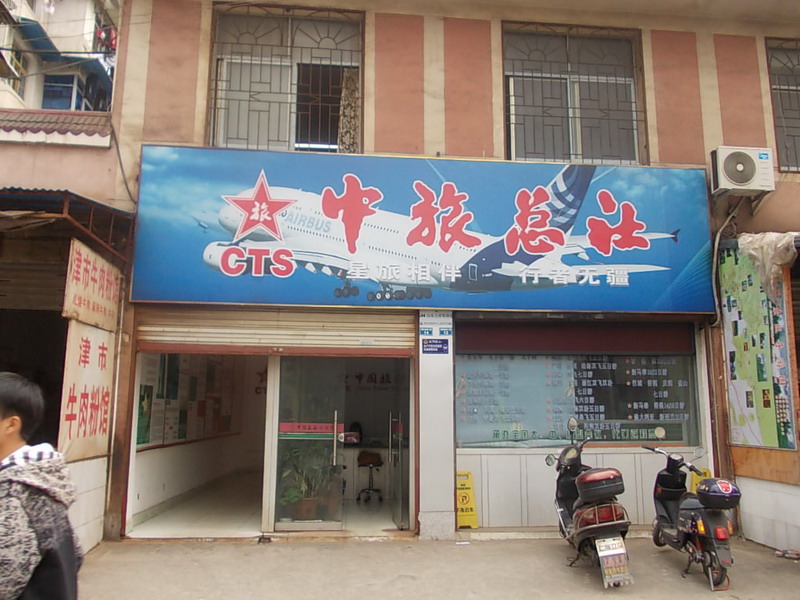ChinaTravelNews, Zhang Li- A new policy directive issued by the China National Tourism Administration is giving tour companies a free rein to set up as many service points as they like in any number of cities within the province and cities where they have their headquarters or offices.

A typical CTS agent upcountry
The Notice on Relaxing of Policies for Tour Operator Service Networks is a boon to the development of the tourism industry, especially for operators keen to set up extensive service networks, as it removes the bureaucratic roadblocks that previously barred crossovers to other regional markets.
Prior to the new rule, a tour operator registered in a provincial capital would be limited to having a service network within that city.
For example, an operator registered in Hangzhou in Zhejiang province could only have service points in the Hangzhou district. If it wanted to expand to other cities in the province like Jinhua or Shaoxing, the company would have to register another local company in those cities first.
This means tour operators would have to open multiple companies even in the same province if it were to expand its service network.
Further, these local subsidiaries would have to apply individually for a license and pay a security deposit of RMB1.4 million each if they wanted to start outbound tourism operations after the CNTA banned commissioned solicitation of tourism business.
This district-based regulation system was disadvantageous for the development of travel operators in many ways.
- Firstly, tour operators’ regional expansion was limited as they had to set up new subsidiaries in each district before they could open new service points in the networks, and such expansion required investments of personnel and capital. As a result, many tour operators gave up on provincial expansion and limited their operations to the most profitable urban markets while those that set up multiple subsidiaries found themselves saddled with high costs.
- Secondly, some smaller cities did not get service coverage of large tour operators because of the high costs for establishing service in remote areas, and major travel brands would skip the cities where they couldn’t have too many service points. Yet local tour operators lacked the licensure for outbound operation and had to rely on the branch offices of larger operators to meet local customers’ needs.
Hopefully regional tourism authorities will swiftly enact the CNTA’s policy change and allow tour operators to make positive steps in the right direction for the development of the national tourism industry. (Translation by David)




